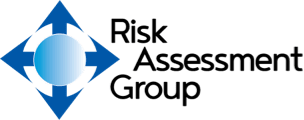What Employers Should Know About DOT testing
DOT testing is a program through the U.S. Department of Transportation that checks for drug and alcohol use in those employed in safety-sensitive jobs as they pertain to transportation. Trucking, aviation, railways and even shipping fall within the areas that may require DOT testing either during or in advance of employment.
The U.S. DOT document “49 CFR Part 40”, commonly known simply as Part 40, contains DOT-wide regulation that dictate how to conduct testing and how to return employees to safety-sensitive duties after they violate a DOT drug or alcohol regulation. More on this comprehensive process is available here: http://www.dot.gov/odapc.
DOT Testing Information for Employees
While the program was established in the early 1990’s to ensure personnel in key safety positions were sober and alert while performing their duties, it goes much further than just that. It includes the formal adoption of employer policies which you must make available to employees covered under your DOT program.
Employees who perform DOT safety-sensitive functions must be provided materials that explain the DOT requirements, and it must be documented that they received those materials.
Some information provided should include, but is certainly not limited, to:
- The name and contact information of persons assigned to answer questions about the program.
- The duties of the employees who are subject to the program.
- Employee conduct prohibited by the regulations.
- The requirement that employees must be tested for drugs and alcohol.
- When and under what circumstances employees will be tested.
- The procedures that will be used for testing for drugs and alcohol.
- An explanation of what constitutes a refusal to test.
- An explanation of the consequences of refusing a test.
- The consequences of violating the DOT rules.
Duties of A Designated Employee Representative
Additionally, employers are expected to have a Designated Employee Representative (DER) on site. According to the U.S. DOT, the DER should have knowledge of and authority to make decisions about the testing process and answer questions about it -- as the primary job of the DER is to ensure the appropriate and timely removal of an employee from safety-sensitive duties if needed.
How A CRA Can Help
It can be a daunting and complicated undertaking to keep your company, employees and the general public safe and within the guidelines of federal law, but it is necessary. And that is why it is a good idea to consider the services of a fully accredited CRA – or Consumer Reporting Agency -- like Risk Assessment Group in developing your program and coordinating the testing of employees.
Professional CRA’s not only have the background and experience to develop programs like this, they also maintain a constant vigil to ensure you are fully aware of new changes and additions to the rules that govern areas like Part 40.
If you have questions or would like to know more about setting up a testing program in your company, please reach out anytime. Though a complex subject, Risk Assessment Group can help your team navigate these waters to ensure your firm’s secure future.


